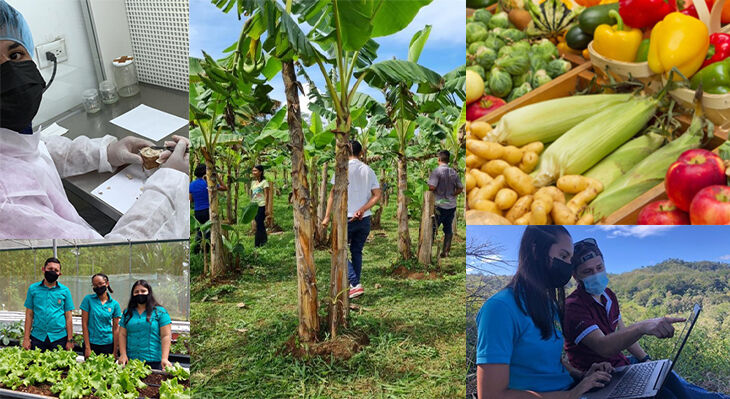Sustainability in vocational education and training – exchange between Costa Rica and Germany
16.08.2022
How can sustainability in vocational education and training be implemented? How can the move be made from an abstract term to specific actions? – Experts from Costa Rica and Germany met to discuss these topics and to network on aspects relating to sustainability in VET.

More than 30 participants from Costa Rica and Germany convened for an expert workshop in order to discuss sustainability in vocational education and training and to swap experiences.
Those attending were able to reach a consensus as to why sustainability has a key role to play in VET in the first place. The global challenges arising due to climate change and a scarcity of resources mean that sustainable actions are no longer a fancy adjunct. They are increasingly becoming a necessity. Vocational education and training is able to make a major contribution towards creating a more sustainable world of work from the very outset by teaching trainees about topics such as environmental protection. They also learn about the proper use of resources and how to adopt a long-term perspective.
During the three-hour event, speakers presented project results or described the respective national approaches being taken in regulatory and structural work. Sustainability has long since made its way into training regulations in Costa Rica, and a similar situation applies in Germany. Whereas Germany has chosen to introduce a new module which covers all 326 training occupations in a cross-cutting way by means of a standard occupational profile position, Costa Rica considers the issue individually for each occupational profile.
The second part of the workshop was devoted to the showcasing and debate of examples of best practice from both countries. Costa Rica demonstrated in impressive fashion how the country’s technical vocational schools offer highly practical training in farming and food production occupations. It stressed the importance of providing training which reflected the actual nature of work in the agrarian sector. At the same time, new technologies such as drones and agricultural measuring equipment were creating impetuses which would exert a subsequent impact on the agricultural industry. One of Germany’s presentations placed the focus on supporting company-based training within the areas of the occupations of dairy technologist and dairy laboratory technician. Materials relating to the topic of sustainability had been developed, and these were now being used in company-based phases of learning throughout the entire duration of training. Both sides expressed a keen interest in exchanging materials and in considering these in more detail.